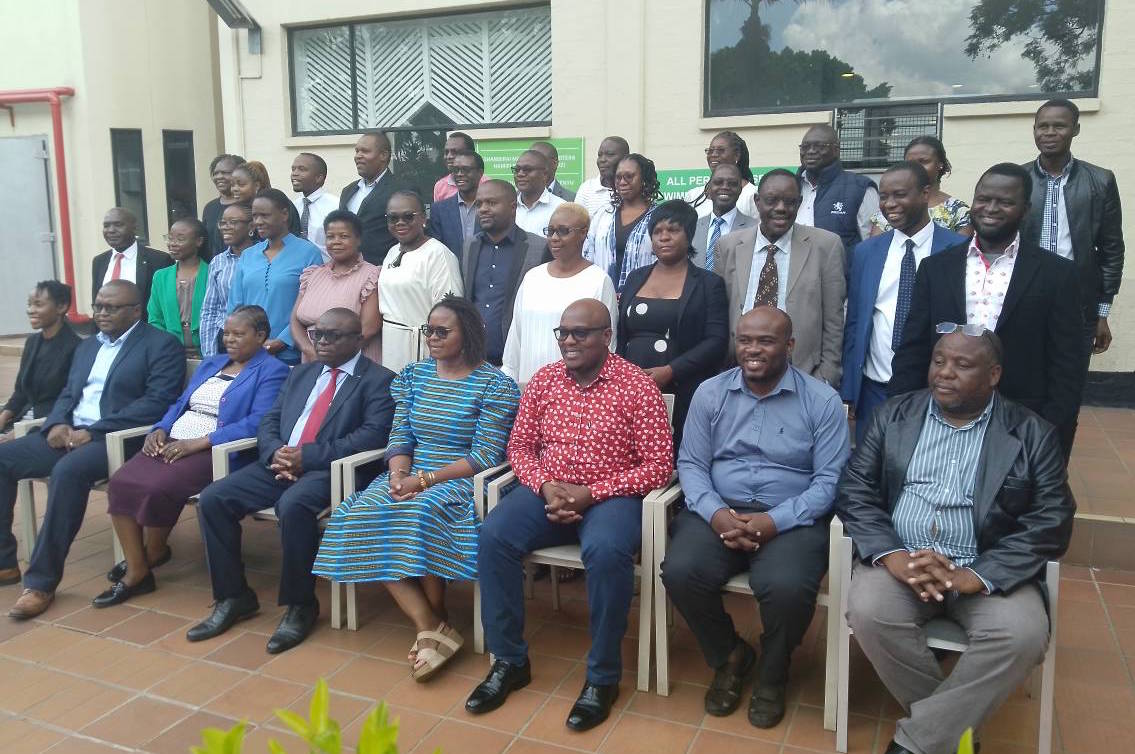|
Getting your Trinity Audio player ready...
|
A science module on communicating genome editing – a powerful tool that holds immense potential in revolutionizing the field of biotechnology to optimize African agriculture, is under review in Harare this week.
Addressing participants in his welcome remarks today, Dr. Leonard Madzingaidzo, the Chief Executive Officer of the Scientific and Industrial Research and Development Centre (SIRDC) said the ability to precisely modify DNA sequences not only provides a deeper understanding of life, but also presents unprecedented opportunities to address various challenges in areas such as healthcare, agriculture, and environmental sustainability.
“The purpose of this workshop is twofold: first, to introduce you, esteemed university lecturers, to four carefully crafted modules that have been developed by the dedicated team of experts at AUDA-NEPAD. These modules are designed to provide a comprehensive and up-to-date understanding of genome editing, covering both the scientific principles and the ethical considerations surrounding this cutting-edge technology.
“Secondly, and equally important, we aim to gather your invaluable feedback on these modules. Your expertise and insights as experienced educators will play a crucial role in enhancing these modules before they are finalized for publication. Your perspectives, from both the theoretical and practical aspects of teaching, will ensure that the modules are comprehensive, engaging, and effectively meet the needs of our students and the broader academic community,” Dr. Madzingaidzo said.
Mrs. Florence Nazare, the Head of the Centres of Excellence, Management, and Coordination unit of the African Union Development Agency (AUDA-NEPAD) – the African Union agency spearheading this biotechnology in Africa, said the module review is part of the National Strategy on Communication and Advocacy for genome editing in the eight pilot implementing countries.
The eight African countries are Burkina Faso, Ghana, Ethiopia, Nigeria, Mozambique, Kenya, Malawi, and Zimbabwe. Madam Nazare applauded the use of African experts in spearheading the implementation of genome editing.
“The African Union believes Africa has the capabilities to embrace such biotechnologies as genome editing. Four solid modules on genome editing have been developed by African experts. The modules are to be used in training and as part of in-country implementation. We are to test-run the modules. The science module is being test run in Zimbabwe which has a rich history of biotechnology. The science is the core module. We will listen, observe, and reflect on whether the module is communicating the aspects of genome editing.
“This workshop will interrogate whether there are there any gaps in training. The modules will be used beyond the eight pilot-implementing countries. We are looking forward to vibrant feedback from the various participants,” Mrs. Nazare said.
There has been remarkable progress made in the communication and advocacy program concerning Genome Editing. To date, there has been successful training of regulatory bodies on genome editing.
“It is an absolute delight to share with you that the regulators are currently working diligently to draft the regulatory framework for genome editing in Zimbabwe. This remarkable achievement showcases the transformative impact of our combined efforts towards embracing responsible and ethical practices while harnessing the potential of genome editing for the betterment of our society,” Dr. Madzingaidzo added.






